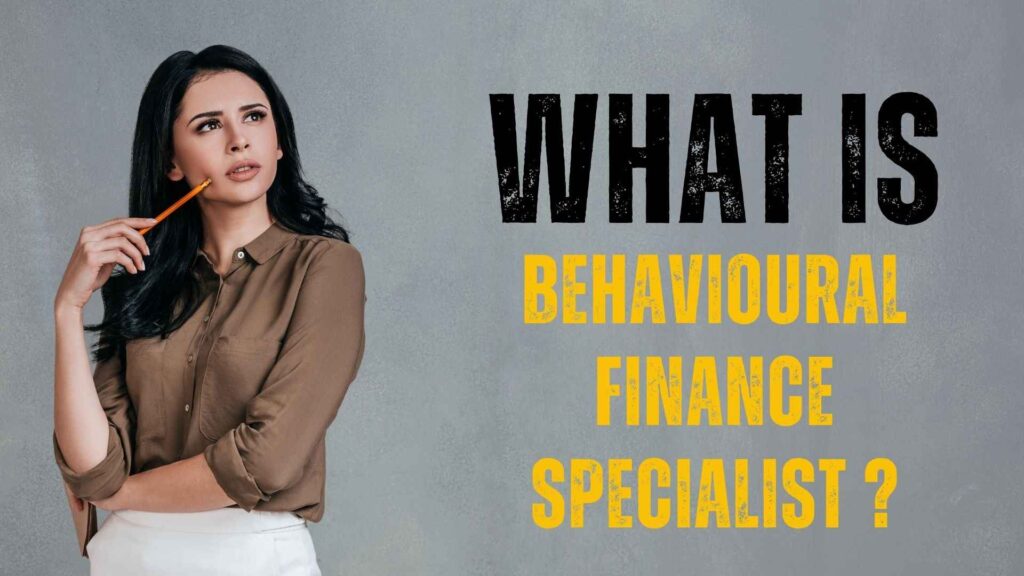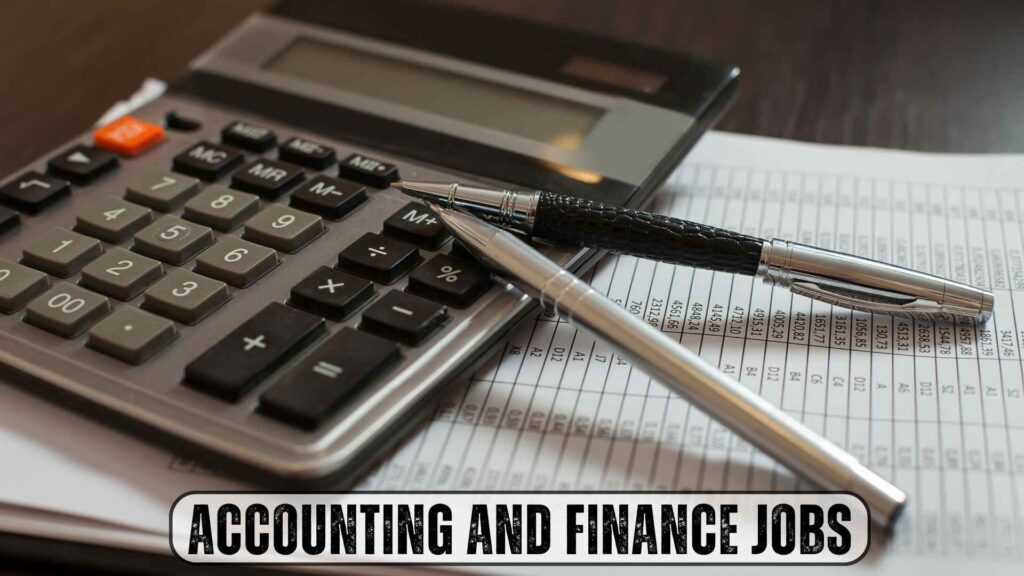If you’re doing an MCom (Master of Commerce) and want to explore career paths beyond regular roles, becoming a behavioural finance specialist could be just right for you. Today, financial decisions are often shaped by human psychology, making commerce jobs in this growing field more popular.
This guide will show you exactly what you need to succeed in behavioural finance, giving MCom students a clear path to follow.
What Is Behavioural Finance?

Behavioural finance is like mixing money matters with a bit of psychology and economics to figure out why people act the way they do with their finances. Traditional theories assume everyone makes smart, logical choices—but let’s be honest, people are not always that rational!
Instead, behavioural finance dives into the emotions, thoughts, and social influences that mess with our decisions. Specialists in this field study how these quirks affect spending, saving, and investing. They help companies predict and manage these behaviours, ensuring they stay ahead of those unpredictable financial moves people tend to make.
Why MCom Students Should Consider Behavioural Finance?
If you’re an MCom (Master of Commerce) student, behavioural finance is an exciting and fresh alternative to regular accounting and finance jobs. It offers new ways to understand and manage both personal and business finances, making it perfect for those who enjoy combining psychology with finance.
Companies are actively looking for professionals who can mix behavioural insights with smart financial strategies. That’s why specialists in behavioural finance are in high demand across different industries—opening the door to some fantastic career opportunities for MCom graduates like you!
The Growing Demand for Behavioural Finance in Commerce Jobs

The scope of commerce jobs has significantly expanded with the rise of behavioural insights in finance. From banks and asset management firms to fintech companies, the demand for behavioural finance professionals is growing.
Organisations want to predict customer behaviour, enhance investment decisions, and design better financial products. This opens up numerous opportunities beyond traditional accounting and finance jobs for MCom graduates.
Step-by-Step Guide to Becoming a Behavioural Finance Specialist
1. Understand the Fundamentals of Finance and Psychology
As an MCom student, you already possess a solid foundation in commerce-related subjects. However, developing an understanding of human behaviour, cognitive biases, and psychological principles is essential. Some key concepts include:
- Loss aversion: The tendency to fear losses more than valuing gains
- Herd behaviour: The inclination to follow the crowd in decision-making
- Anchoring bias: Relying heavily on initial information when making decisions
2. Take Relevant Courses in Behavioural Finance
Several universities now offer elective courses on behavioural finance as part of their Master of Commerce programmes. If such courses are not available, online platforms like Coursera and edX offer affordable options. Supplementing your MCom curriculum with these courses can give you an edge when applying for behavioural finance roles.
3. Gain Practical Experience with Internships
Internships are crucial in preparing for behavioural finance roles. Look for internships in banks, asset management firms, or fintech companies, focusing on areas like customer behaviour analytics or investment advisory.
Practical exposure will bridge the gap between theoretical knowledge and real-world applications, setting you apart in the commerce jobs market.
Skills MCom Students Need to Excel in Behavioural Finance
To stand out as a behavioural finance specialist, MCom students must develop a mix of analytical and interpersonal skills. Here are the essential skills to focus on:
- Financial Modelling and Data Analytics: Learn how to analyse data patterns and predict financial outcomes.
- Behavioural Analysis: Study how emotional, psychological, and social factors affect decision-making.
- Communication Skills: The ability to communicate complex financial insights clearly and persuasively.
- Problem-solving Abilities: Use behavioural insights to solve business problems and enhance financial strategies.
These skills will not only enhance your expertise in behavioural finance but also make you eligible for top accounting and finance jobs that require a behavioural perspective.
Networking and Professional Growth
Networking is essential for landing top commerce jobs and building a strong career in behavioural finance. Attend industry events like seminars, webinars, and conferences to stay updated and meet professionals. Joining online communities and connecting with experts on LinkedIn can open valuable opportunities.
Staying informed about the latest trends keeps you ahead of the competition and helps you explore roles that fit your MCom qualification. In today’s fast-changing job market, networking is key to unlocking new career paths and long-term success.
Career Opportunities and Roles

Once you develop expertise in behavioural finance, a variety of roles will open up. Some of the top accounting and finance jobs related to this field include:
- Behavioural Finance Analyst: Assess and predict investor behaviour to improve financial strategies.
- Financial Advisor: Use behavioural insights to provide better investment advice and risk management.
- Product Designer in Fintech: Design financial products and services based on customer psychology.
- Risk Analyst: Identify behavioural risks that may affect financial decisions and investments.
These roles are perfect for MCom graduates seeking new-age commerce jobs that combine finance with human behaviour.
Certifications That Can Help Your Career
While an MCom degree provides a strong foundation, earning certifications can enhance your employability in behavioural finance roles. Some recommended certifications include:
- Chartered Financial Analyst (CFA): With behavioural finance as part of its curriculum, CFA can help boost your expertise.
- Financial Behaviour Specialist (FBS): This specialised certification focuses entirely on behavioural finance concepts.
These certifications will not only validate your knowledge but also open doors to more lucrative accounting and finance jobs.
Conclusion: Shape Your Career in Behavioural Finance
You can choose to become a behavioural finance specialist if you like both finance and psychology. Knowing both can make you stand out in a sea of job seekers! As an MCom (Master of Commerce) student, you already have a strong foundation in commerce. Now, with some extra effort—learning new skills and getting real-world experience—you can thrive in this fascinating field.
Whether you want to grab the best accounting and finance jobs or dive into innovative fintech roles, behavioural finance offers endless possibilities for growth. So, why stick to the ordinary? Make your Master of Commerce count—sign up for specialised courses, land internships, and build connections with professionals.
With passion and the right mindset, you’ll shape your career in behavioural finance and create your own path in the ever-evolving world of commerce jobs. Exciting, right? Time to make it happen!
Read Also- Pursue a BA LLB at SMS Law College: A Gateway to the Future of Law 2024
Top 10 Best Apps for Students to make BA life Abreeze





